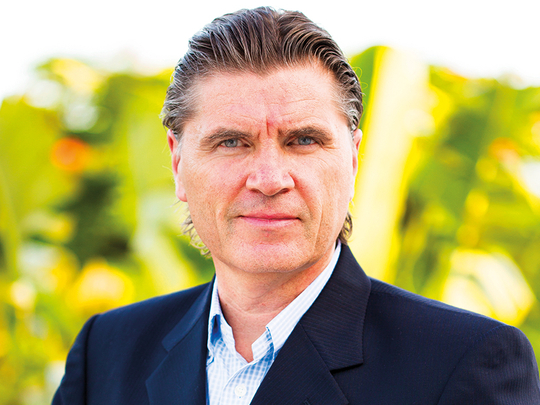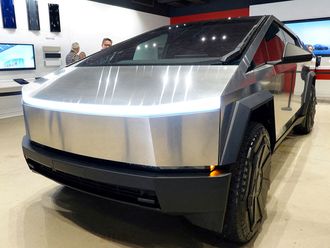
Dubai
Watchmakers shouldn’t bother with trying to get their brands on the wrists of the young. That demographic of buyers is more or less taken up with smartwatches or a fitness tracker and not likely to go back to watches.
“It will be quite a stretch for any watchmaker to create something that will appeal to them,” said Will Stein, Co-founder of the Philip Stein label. “The rule is that the young no longer wear watches unless they are of the smart variety, and that too primarily Apple.
“Apple is already the largest watch company in the world in terms of quantity. Maybe the other smart watchmakers are not there yet or have problems.
“But it’s a fact that the smart watches have taken a big chunk of the business from traditional watch companies.”
Yet, traditional watchmakers have kept trying to catch the eye of a younger generation and the millennials. Some have integrated “smart” features into their new offerings, but the general perception is that the market response has been quite tepid.
But there were signs that 2017 ended up being a middling to good year for the global watch industry, especially the Swiss. The luxury labels among them saw demand picking up once more in the US and China, though the Middle East was a bit of a let down.
But Stein reckons that no one should rush to judgement that better times are ahead. “The Swiss makers reported a 3 per cent increase in exports,” said Stein. “That might be true, but at the end of it a lot of watch companies had to deal with a large amount of stock.
“In Dubai, Singapore and Hong Kong, the watch business has gone down. As for the US, at the top end of the watch market, it still works. But in the mid-price point, it remains extremely difficult.” ((Al-Futtaim Watches & Jewellery are the distributors for Philip Stein in the Gulf.)
As for Stein, he has not given up on the young. But instead of pushing his range of timepieces, he is doing so through accessories. In the last four year years, the brand has consciously been pushing the claims of its “well-being” bracelets and talking up the natural frequency technology they carry.
“We do not simply want to be a watch brand and being bought just because of the looks, the mechanics or the fashion,” said Stein. “I want it to be because of our wearable, well-being technology. Sure, 60 per cent of our sales are through the watches, but we are expanding into other categories. We are selling the sleep and fitness bracelets to the hospitality industry, spas and yoga studios.
“In time that will increase brand awareness. And there’s always the chance that a young user will perceive Philip Stein as a well-being brand and this will bring them back to our watches. Any other way would be a waste of time.”
So, no chance then of a Philip Stein watch or tracker bearing a “smart” feature?
“What those companies do are essentially operating as monitors — tracking your sleep, fitness level and as a way to receive calls,” said Stein. “We are not a tracking device, but meant to improve sleep patterns and energy levels.
“For any new product we come up with, it has to be along those lines. We want to work with human bodies and natural frequency. That’s the way for us to evolve.”












